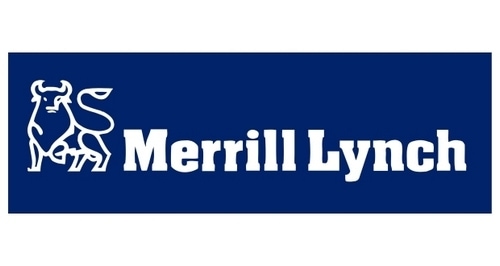The Marketing mix of Merrill Lynch analyses the 4Ps of Merrill Lynch, which includes the Product, Price, Place, and Promotion of Merrill Lynch. Merrill Lynch Wealth Management is simply referred to as Merrill Lynch. It has been a subsidiary of its parent company, Bank of America, since January 2009, January 9. Merrill Lynch is associated with the financial service industry and deals in divisions related to the wealth management of its owner company. It was founded in 1914 as Merrill Lynch & Company, Inc. and was a publicly traded company before its acquisition and merger. Some of its competitors in the world are as follows-
- Goldman Sachs
- Morgan Stanley
About Merrill Lynch
- Type: Investment bank and wealth management company
- Industry: Financial services
- Founded: January 6, 1914
- Founders: Charles E. Merrill and Edmund C. Lynch
- Headquarters: New York City, New York, United States
- Area served: Worldwide
- Key people: Brian Moynihan (Chairman) and Andy Sieg (CEO)
- Number of employees: 14,000
Table of Contents
Merrill Lynch Product Strategy
Merrill Lynch is its parent company’s wealth management and investment banking division. It is one of the largest brokerage firms in the world, with nearly 2.2 trillion dollars in client assets.
Merrill Lynch has deep resources, a rich pool of investments, and a global reach that helps it offer unmatched financial and advisory services. It has clients in both domestic and international markets and serves them with a full range of products and services. Its diversified product kit includes the following-
- Risk Management
- Finance Management
- Asset Management
- Banking
- Investment Advisory
- Investment Management
- Brokerage
- Financial Planning
- Selling and Trading Activities
- Deals in Currencies
- Dealings in Derivatives
- Distribution of Fixed Income and Currency
- Distribution of Commodity and Equity Products
- Offers Custody, Settlement and Clearing Services
- Offers assistance in raising capital through private placements of equity, loan syndication, and debt and its related securities
- Advisory Services on acquisitions, mergers, valuation and restructurings
- Corporate Audit
- Dealings in Securities
- IT Audit
- Small Business Banking
- Corporate Banking
- Quantitative Financial Analysis
- Research Insights and Trading
- Capital Raising
- End-to-end Technology Solutions
Merrill Lynch, a prominent wealth management division of Bank of America, offers various financial products and services.
The product mix of Merrill Lynch in 2023 is as follows (Source)
- Investment Products: This includes stocks, bonds, mutual funds, ETFs (Exchange-Traded Funds), and options. Merrill Lynch provides a platform for both self-directed trading and professionally managed portfolios.
- Wealth Management Services: Tailored financial planning and investment advice for individuals, including high-net-worth individuals. This service often involves creating customized investment strategies based on the client’s financial goals and risk tolerance.
- Retirement Solutions: Offering various retirement accounts like IRAs (Individual Retirement Accounts), Roth IRAs, and 401(k) plans, Merrill Lynch helps individuals and businesses in planning and managing retirement savings.
- Banking Services: Through its affiliation with Bank of America, Merrill Lynch offers banking services like checking and savings accounts, CDs (Certificates of Deposit), and credit cards.
- Lending Solutions: This includes home loans, securities-based lending (where clients can borrow against the value of their investment portfolio), and other personal lending solutions.
- Insurance Products: Life, disability, and long-term care insurance are available, providing clients with risk management solutions to protect their wealth.
- Educational Savings Plans: These include 529 plans, which are tax-advantaged plans designed to encourage saving for future education costs.
- Annuities: Merrill Lynch offers fixed and variable annuities as part of its retirement and investment solutions.
- Research and Insights: Providing clients access to market research, investment insights, and economic forecasts to inform their investment decisions.
- Corporate and Institutional Services: This includes advising on mergers and acquisitions, equity and debt market services, and other corporate finance solutions.
It’s important to note that Merrill Lynch, like other financial institutions, continually adapts its product offerings to the changing market and regulatory environment.
Merrill Lynch Place Strategy
Merrill Lynch has American origins and is headquartered in New York City, United States. It has been actively involved in the banking and financial sector for a long time in places like Africa, the Middle East, Asia, and Europe. It offers its services to clients in India, Argentina, France, Germany, Australia, Japan, China, Indonesia, Singapore, Thailand, Malaysia, and Korea.
It has a strong network of more than fifteen thousand brokers and seven hundred offices affiliated with the company, which are spread over thirty cities in the global arena. Merrill Lynch has taken the help of the distribution network of its parent company, Bank of America, and, with its help, has worked efficiently. It is helped by a workforce that includes trained and capable employees for direct and indirect customer dealings.
Merrill Lynch’s place strategy is as follows:
- Global Presence: Merrill Lynch operates globally, with offices in major financial centers worldwide, providing clients with international investment opportunities and global market insights.
- Online and Digital Platforms: Emphasizing digital accessibility, Merrill Lynch offers online platforms like Merrill Edge for self-directed investing and wealth management, catering to tech-savvy clients and broadening its reach.
- Integration with Bank of America: Leveraging its relationship with Bank of America, Merrill Lynch provides a seamless banking and investment experience available through a vast network of Bank of America branches.
- Dedicated Financial Advisors: Across various locations, Merrill Lynch provides personalized service through dedicated financial advisors, ensuring clients have local, face-to-face interaction and tailored advice.
- Client-Centric Approach in Location Selection: Merrill Lynch strategically selects its office locations based on client demographics and market potential, ensuring proximity to key client segments and addressing specific local market needs.
Merrill Lynch Pricing Strategy
Merrill Lynch believes in developing a trusted relationship with its clients through its sophisticated global resources. It serves large corporate houses, middle-market and small business entities, government clients, and individual customers with global expertise and local knowledge. Merrill Lynch is committed to delivering the best experience to its clients by connecting all its resources and capabilities.
It wants to craft a pricing strategy that will benefit its clients and company. Merrill Lynch has adopted a value-based variable pricing strategy that depends on a particular client and its needs. It implements its pricing policy to suit individual needs and is different for every client. The company tries to maintain a balance, offering its deals at reasonable and affordable rates.
Merrill Lynch’s pricing strategy reflects a sophisticated blend of value proposition and market segmentation, aligning closely with its brand reputation for quality and expertise in wealth management and financial services. This strategy can be detailed as follows:
- Tiered Pricing Structure: Merrill Lynch adopts a tiered pricing structure to cater to a diverse client base. This approach includes competitive commission rates for self-directed investors through Merrill Edge while offering premium pricing for personalized wealth management services. This segmentation ensures affordability for retail clients and value-based pricing for high-net-worth individuals.
- Performance-Based Fees: For certain investment products and wealth management services, Merrill Lynch employs a performance-based fee structure. This aligns the firm’s interests with its clients, as fees are often tied to the performance of the investments, ensuring that Merrill Lynch is incentivized to deliver optimal results.
- Transparent Fee Structure: In the realm of financial advisory and managed portfolios, Merrill Lynch emphasizes transparency in its fee structure. This approach involves clear communication of management fees, transaction costs, and other charges, which builds trust and positions the brand as an honest and client-centric firm.
- Customized Pricing for Institutional Clients: Recognizing the unique needs of institutional clients, Merrill Lynch offers customized pricing strategies. This is particularly relevant in corporate finance, mergers and acquisitions, and other large-scale financial services, where pricing is tailored to the complexity and scope of the services rendered.
- Competitive and Adaptive Pricing: Merrill Lynch continually monitors the market to ensure its pricing remains competitive. This involves adapting to industry trends, regulatory changes, and evolving client needs, ensuring the firm remains attractive to existing and prospective clients in a dynamic market environment.
In summary, Merrill Lynch’s multi-faceted pricing strategy caters to different market segments while upholding its brand promise of high-quality financial services. The strategy balances competitiveness, transparency, and customization, ensuring alignment with the evolving demands of the financial services sector.
Merrill Lynch Promotion Strategy
Merrill Lynch realizes customer relationships are an important part of its organization and has taken steps to maintain the status quo. It has adopted online promotional strategies via content marketing. Its company website offers relevant information along with regular updates to interested parties. It has also adopted traditional advertising methods, although its main medium is word-of-mouth publicity, as one satisfied client recommends its services to another. Its parent company, Bank of America, advertises its company along with Merrill Lynch through its advertising campaigns via print media in trade and business magazines
Merrill Lynch’s promotion strategy is as follows:
- Targeted Digital Marketing: Utilizing digital platforms for targeted advertising and content marketing, Merrill Lynch reaches out to potential clients with personalized financial solutions and investment insights.
- Strategic Partnerships and Sponsorships: The company engages in strategic partnerships and sponsorships, aligning with events and organizations that resonate with its target clientele and enhancing brand visibility and reputation.
- Educational and Advisory Content: Merrill Lynch offers a range of educational resources and advisory content, positioning itself as a thought leader in finance and investment, thus attracting and retaining clients through demonstrated expertise.
Some Recent Video ads and Print ads of Merrill Lynch are:
https://youtu.be/Yf7g0eVsYaQ
Liked this post? Check out the complete series on Marketing Mix

